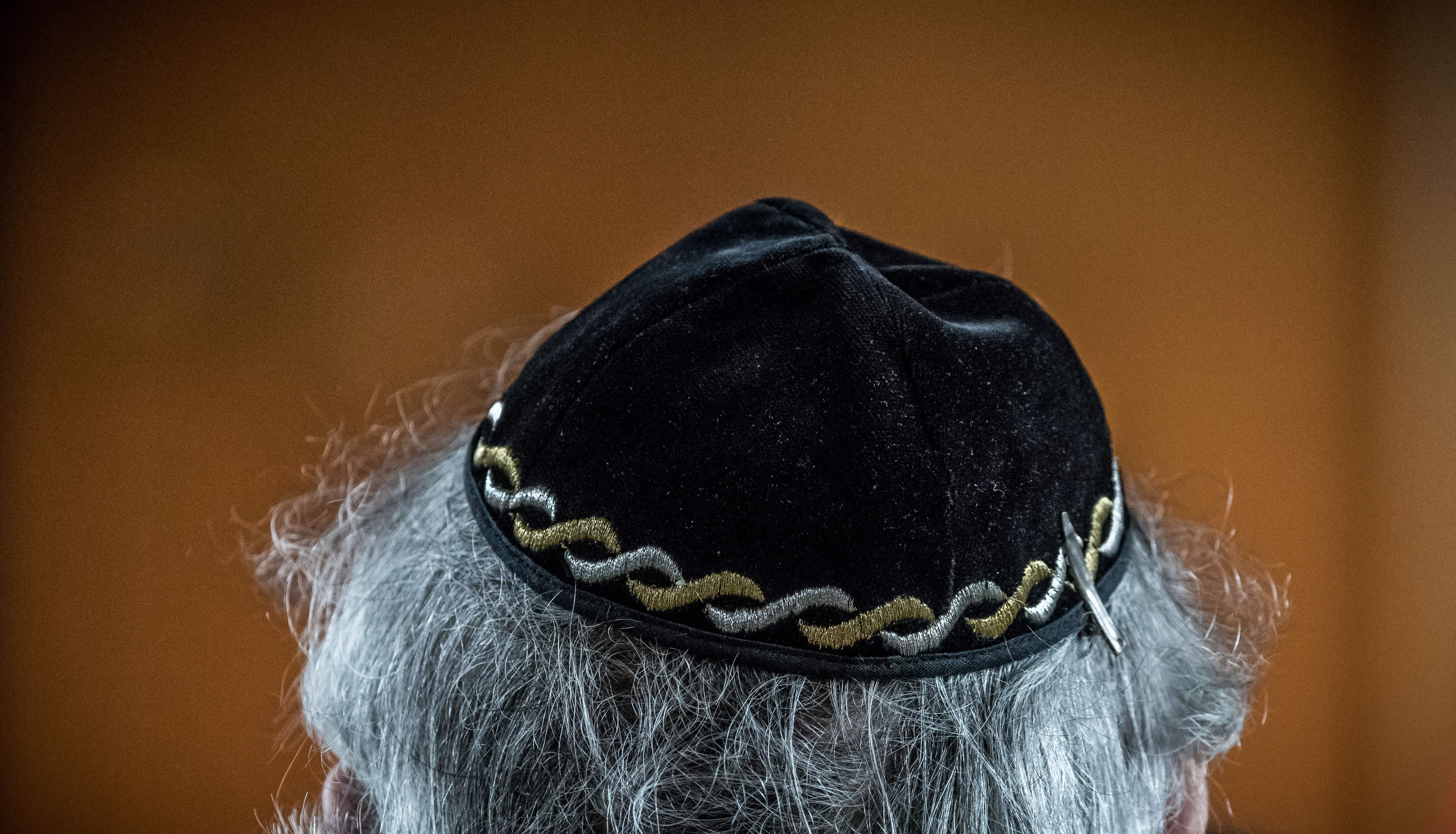Hebrew a small hat or head covering that Orthodox Jewish men wear every day and that other Jews wear when studying praying or entering a sacred space. A Jewish skull cap is also called a yarmulke or a kippah.
 Jewish Leader Advises German Jews Not To Wear Kippahs Time
Jewish Leader Advises German Jews Not To Wear Kippahs Time
Now they might be told to forsake a badge of identity they have chosen to wear.

Why do jewish men wear skull caps. With that they recommend certain practices that one must wear the skull cap. This solution is not universally accepted however and. There are a number of references to the practice in the Talmud.
In some places the wearing of a skull cap represents ones political affiliation as that of yeshiva. The Old Testament is silent on the wearing of the kippah or skull cap. So if the kippah is absent from the Bible how was it adopted.
Some of the non-orthodox Jews do not wear the skull caps all the time as some would refer to it as the special practice of the pious. Should they opt for one of the smaller kippah sizes as opposed to the head-encompassing soup bowl style a hair clip may be used to fasten the fabric to any available hair. It was then that he realized the strong effect which the wearing of a kippah had on him.
Dome is the Hebrew word for skullcap also referred to in Yiddish as a yarmulke or less frequently as a koppel. Wearing a kippah is not a religious commandment. It is also nowhere found in the New Testament.
Around the world a simple ring has become a symbol and reminder of ones commitment and values in life. Jewish skull caps can be seen on the head of orthodox Jewish men all over. One of these is Rav Huna the son of Rav Yehoshua who would not walk four cubits.
This is most probably the most unique sign to recognize and spot an orthodox Jew. The general reason Jewish men cover their heads is to emulate Talmudic precedent. A married couple may feel very connected without it but wearing that ring makes a big difference.
Jews who frequently wear a kippah know where to put it on their head the crown and tend to own kippot which have been tried tested and are a good fit. Jews used to be compelled to wear distinctive dress to mark them out. Fear in this sense means reverence not terror It shares the story of Rav Nachman bar Yitzchak whose mother had reason to believe that her son would grow up.
You most probably wonder why orthodox Jews wear a. But some movements do believe that I wearing skull caps am a means of showing respect and regard and a recognition of their religious group. Antiochus Epiphanes the Seleucid emperor made it his personal goal to force the Greek culture upon all of his empire including the Jewish.
The Talmud in tractate Shabbos 156b teaches us that covering the head is a way to cultivate fear of Heaven. An apt description for the yamaka is that it is a brimless cap made of cloth that is traditionally worn by Jewish men and boys in fulfillment of the requirement for the head to be covered. The skull cap can.
You may be wondering where all Jewish males have to wear the kippah at all times. In later generations though it became the accepted custom for all Jewish men to wear a kippah at all times and especially during prayer. The observation of the requirement for a head covering is interpreted and observed differently by.
Also known as a yarmulke. A kippah or skull cap is a lot like a wedding ring. Orthodox Jewish men always cover their heads by wearing a skullcap known in Hebrew as a kippah or in Yiddish as a yarmulke.
The kippah has become the most visible. Jewish law requires men to cover their heads as a sign of respect and reverence for Gd when praying. Hebrewscriptureswith Benjamin Leon.
The practice of wearing a yarmulke kippah in Hebrew is an ancient tradition that has its roots as a middas chasiddus an act of piety before becoming accepted as normative practice for Jewish men and boys. You might have also heard them called yarmulkes pronounced yamakas which is a Yiddish word taken from the Polish word for skullcap. A kippah is a small skull cap that are worn by many Jewish men during prayers though Orthodox men will tend to wear them all day.
KEE-pah or kee-PAH Origin. The reason why rabbis and many observant Jews wear them is. In Talmudic times the practice of wearing a headcovering was reserved for men of great stature.
Liberal or Reform Jews see the covering of the head as optional. The tradition likely goes back to Greek culture.
